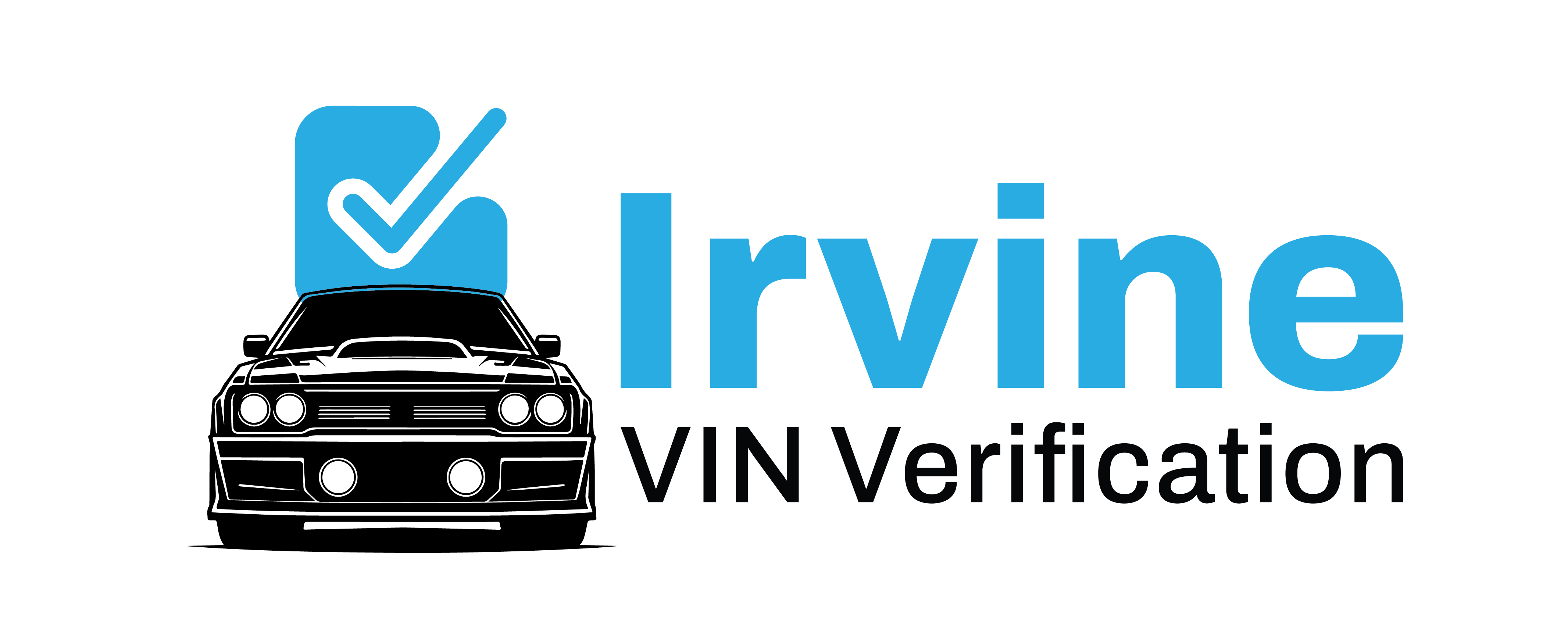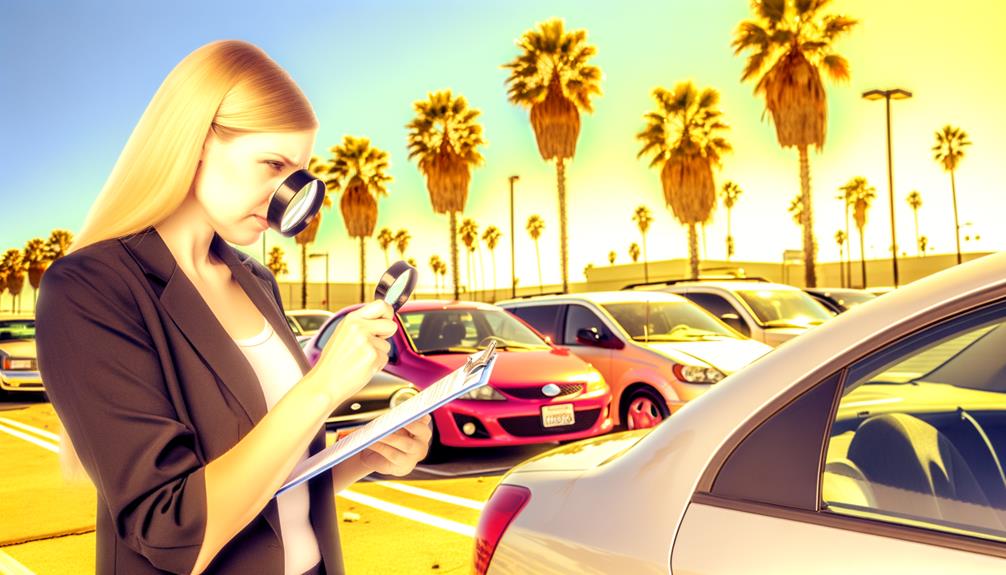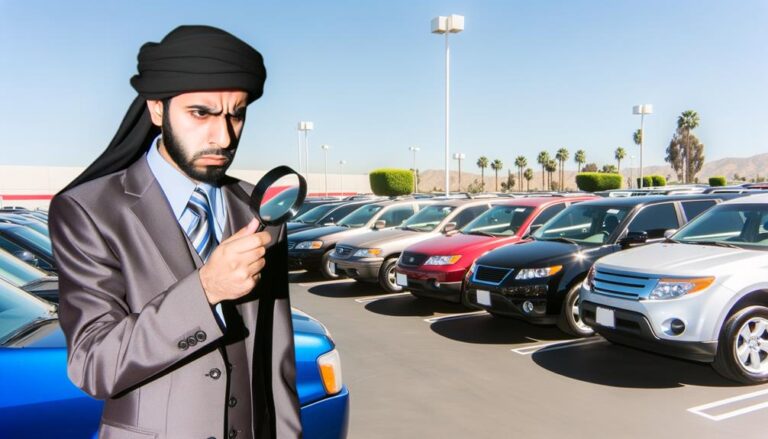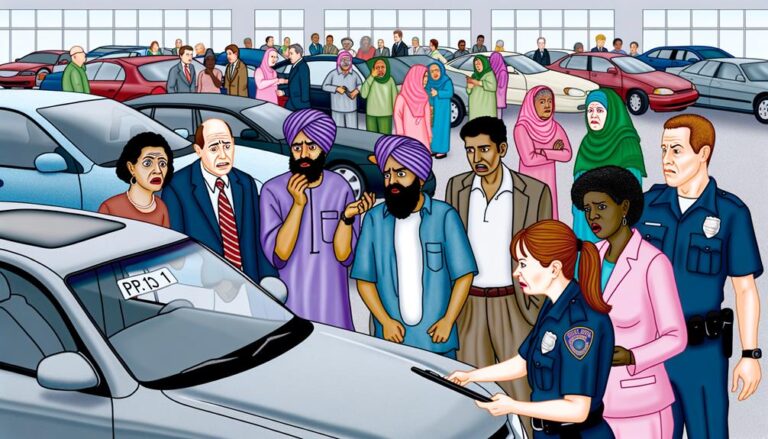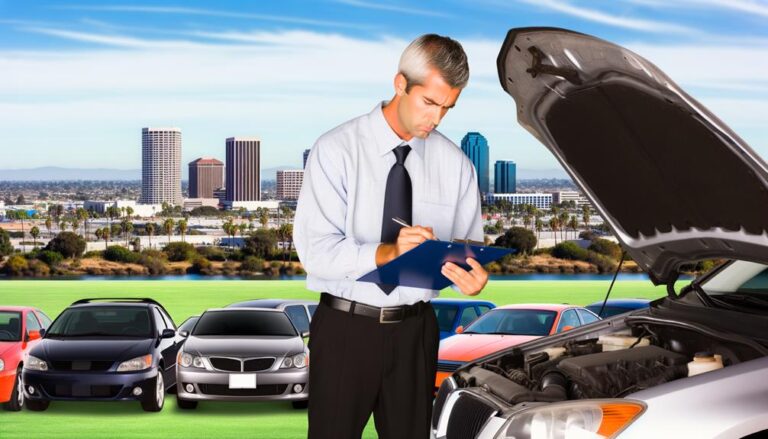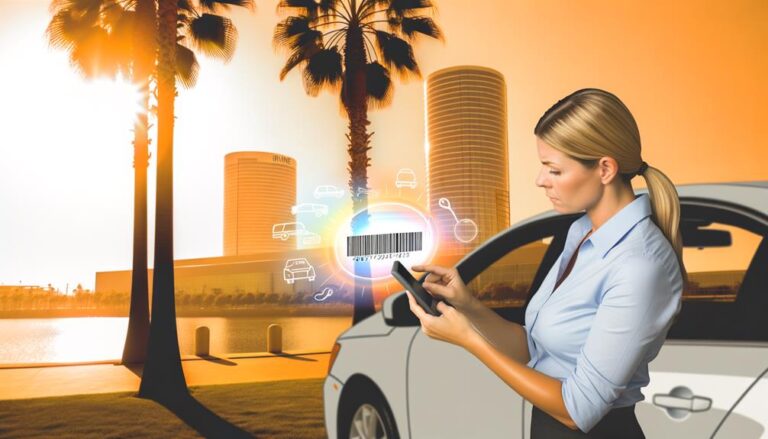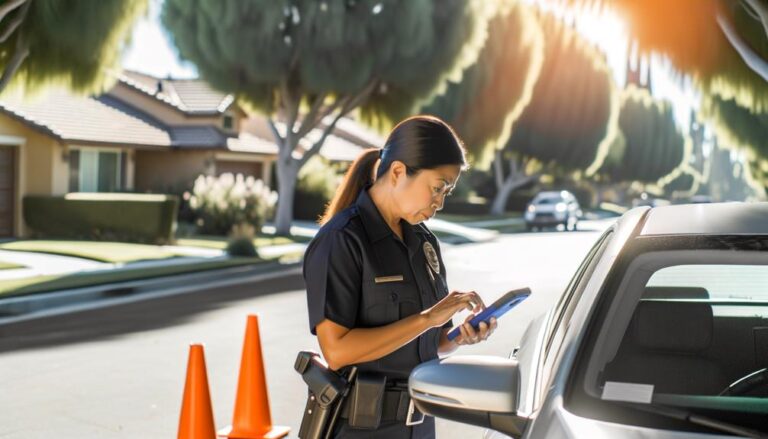VIN verification is essential when you're registering your out-of-state vehicle in California to guarantee it aligns with state safety and emission standards. You'll need to complete DMV form REG 31, which a licensed verifier typically handles. This process involves checking that your vehicle's VIN matches your ownership documents and meets U.S. Federal and state emission standards. It's done by California Highway Patrol, DMV personnel, or other authorized verifiers. Complying avoids registration denial and legal issues. Knowing the full implications of VIN verification will further clarify how it affects your vehicle's compliance with California laws.
Overview of VIN Verification
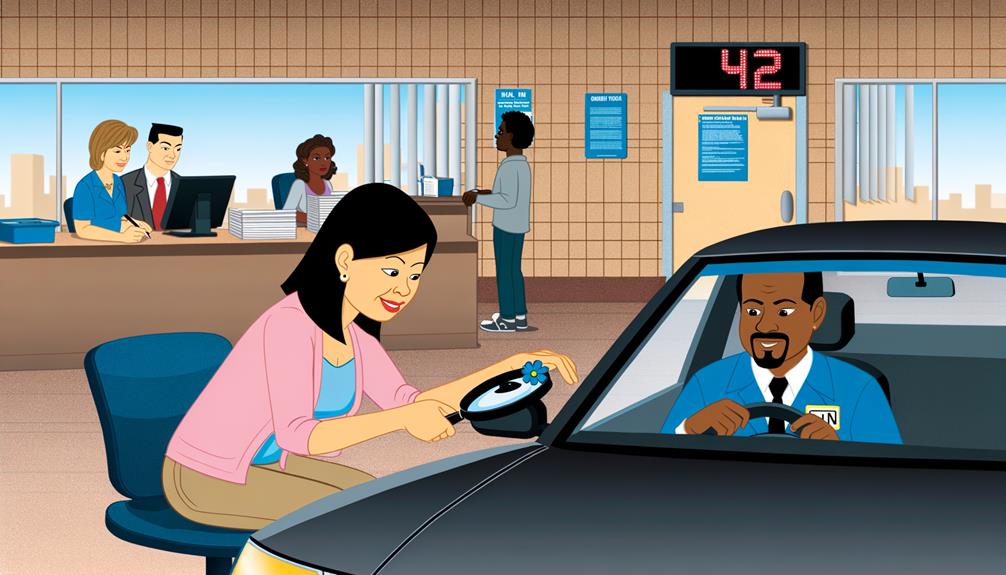
VIN verification is an essential step for registering out-of-state vehicles in California, ensuring they meet state-specific safety and emission standards. If you're moving to the Golden State or importing a car, you'll need to navigate this process to enjoy the freedom of the open road under California's blue skies.
This process isn't just a formality; it's a safeguard that your vehicle aligns with stringent emission standards and vehicle safety protocols. By undergoing VIN verification, you're ensuring that your ride doesn't just look good but is good for California's air and roads.
The Department of Motor Vehicles (DMV) requires a completed DMV form REG 31, where a licensed verifier checks not only your vehicle's identity but also its compliance history and ownership documents. Additionally, verifying the vehicle's emissions label is vital for meeting California's environmental regulations.
You can choose to have this verification done by California Highway Patrol officers or at authorized locations like Redline Registration Services. Opting for authorized licensed verifiers can save you a long wait at the DMV.
They'll scrutinize the U.S. Federal Certification label and emission label on your vehicle, confirming that your vehicle information meets all local requirements. This step is significant, especially if your vehicle has a history like a salvage title or odometer discrepancies.
Legal Requirements for Verification
Understanding the legal requirements for VIN verification is the next step in ensuring your vehicle is road-ready in California. If you've brought your car from another state or are dealing with odometer discrepancies, salvage titles, or first-time registrations, you'll need to navigate this process to stay on the right side of the law.
The California DMV insists that you complete form REG 31, which a licensed verifier must handle. This step confirms that your vehicle's VIN matches its ownership documents, aligning with state safety standards and compliance mandates. It's not just about checking boxes; it's about ensuring that every vehicle on the road is legitimate and safe.
Moreover, this verification is essential as smog check requirements and emissions compliance are stringent in California, especially for vehicles coming from out of state. Without proper verification, you could face delays or denials in registration, complicating your compliance with state laws.
You've got to remember that only authorized verifiers like the California Highway Patrol or licensed private verifiers are allowed to conduct this vital check.
Plus, your vehicle must pass a smog test and display a valid Federal Certification label. Both are essential for your registration process, emphasizing the significant role of VIN verification in maintaining the integrity and safety of California's roads.
Verification Process Explained

Starting your vehicle's VIN verification involves completing the DMV form REG 31, which a licensed verifier must fill out. This initial step guarantees your freedom to navigate California roads without a hitch.
Once the form's squared away, the vehicle verifier springs into action, meticulously examining your vehicle's VIN placement against your ownership documents. This essential step confirms the vehicle's identity and legitimacy, safeguarding your right to a transparent registration process.
During the vehicle inspection, the verifier checks the U.S. Federal Certification label. It's important to verify that your vehicle aligns with California's rigorous safety standards. This isn't just about compliance; it's about assuring your journey is secure under the state's protective regulations.
The inspection doesn't stop there. Your verifier will also scrutinize the emission label to confirm adherence to California's strict emission standards. Confirming your vehicle meets these criteria is key for DMV registration approval, allowing you the liberty to drive worry-free about environmental impact.
For added convenience, consider mobile VIN verification services. They bring the verification process to your doorstep, simplifying compliance while you keep up with your busy life.
Consequences of Non-Compliance
Failing to comply with VIN verification requirements can quickly derail your ability to legally drive in California. If your vehicle hasn't passed the necessary checks, you won't be able to renew its registration.
Imagine being stuck with a car you can't drive—just when you need that freedom the most. The California DMV is stringent, denying registration to any vehicle that falls short during VIN verification. This isn't just a minor hiccup; it's a full stop on your vehicle's legal road usage.
The consequences don't end at registration renewal. If you're thinking of selling a car that hasn't met the compliance standards, you're in for a rough ride. You must disclose the non-compliance status in writing to any potential buyer, or else face legal repercussions.
Plus, even if the vehicle remains under your name, non-compliance can lead to operational restrictions that limit how and where you can drive.
Let's not forget the penalties. Ignoring the need for VIN verification can lead to fines and, for those who persist in driving non-compliant vehicles, even harsher citations.
Each violation pushes the fines higher, squeezing your wallet and your freedom to roam the roads. Be wise—don't let non-compliance clip your wings.
Benefits of Proper Verification
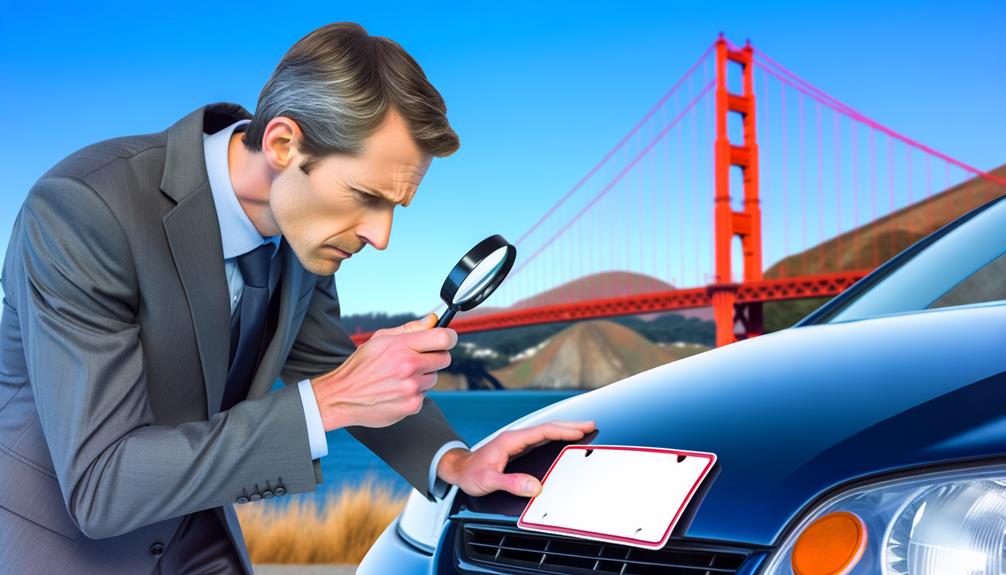
Proper VIN verification not only aligns with California's rigorous safety and emission standards but also streamlines the registration process for your vehicle. By confirming your car complies, you're not just ticking a box; you're guaranteeing a smoother ride in more ways than one.
Imagine breezing through registration without a hitch, all because your VIN check confirms everything's in order—right down to the odometer reading.
This isn't just about compliance; it's about peace of mind. You'll know your vehicle meets the high standards California sets to keep you safe on the road.
Plus, a verified odometer reading ensures you're not caught off guard by hidden mileage issues that could affect your car's performance and value.
Moreover, effective VIN verification can save you time and hassle. You won't be left hanging at the DMV or entangled in legal issues due to discrepancies that could've been caught early.
It's about more than legality; it's about your freedom to drive without unforeseen troubles, knowing your vehicle is as up-to-standard as it gets in the Golden State.
Authorized VIN Verifiers
While steering through the complexities of vehicle registration in California, it's vital to engage authorized VIN verifiers to guarantee your process is smooth and compliant.
You've got several options for authorized VIN verifiers: California licensed verifiers, the California Highway Patrol, and certain DMV personnel. These professionals are officially recognized to handle VIN verification, ensuring you're ticking all the boxes for legal and regulatory requirements.
When you're dealing with vehicles from out-of-state, odometer discrepancies, or are trying to register salvage or revived junk vehicles, you'll need a VIN verification. This step is significant, not just a formality.
Common Verification Challenges
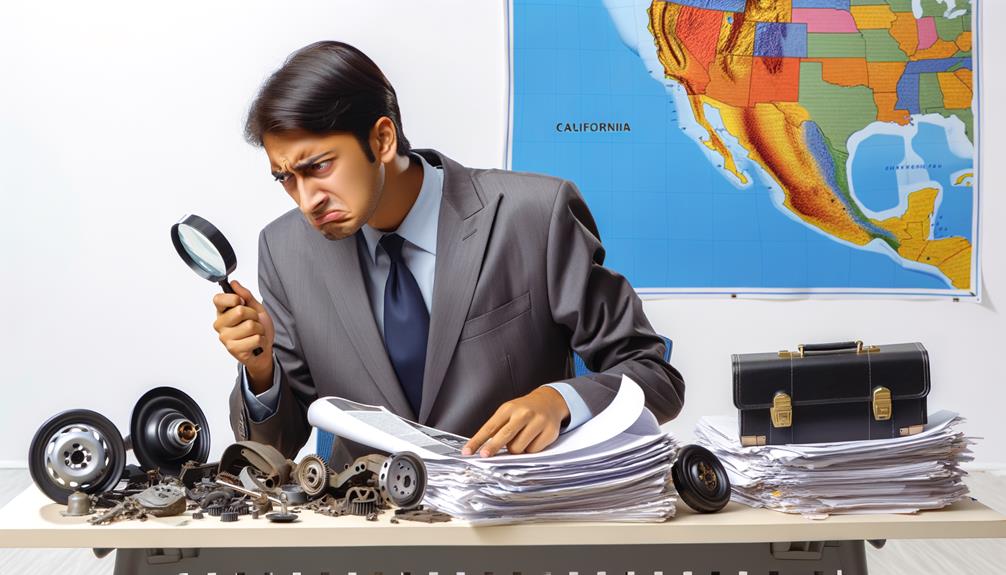
In traversing the VIN verification process, you may encounter several challenges that can complicate vehicle registration in California. One hurdle is making certain the VIN on your motor vehicle matches the documentation. Any discrepancies can cause significant delays or even denials by the DMV. You've got the freedom to move, but these mismatches might just put a brake on your plans.
Odometer discrepancies are another common snag. If the reported mileage doesn't line up with the vehicle's history, you'll need to undergo VIN verification. This step is essential to guarantee compliance but can add unexpected bumps along your registration journey.
Dealing with vehicles that have a salvage title or have been previously junked and revived? These types of motor vehicles require thorough VIN verification to confirm they're eligible for registration in California. It's about maintaining safety and compliance, guaranteeing every vehicle on the road meets the state's rigorous standards.
If you're a new resident with an out-of-state vehicle, brace yourself. Obtaining the necessary VIN verification can be a lengthy process, as only authorized entities can conduct it, potentially prolonging your registration.
Lastly, watch out for missing or damaged federal certification labels. These labels are key to proving emission standard compliance, without which verifying your vehicle could hit a dead end.
Frequently Asked Questions
Is VIN Verification Required in California?
Yes, you'll need VIN verification in California if you're registering an out-of-state vehicle, or one labeled as salvage. It's essential to guarantee your car meets all state requirements and avoids registration issues.
Does CA DMV Charge for VIN Verification?
No, the CA DMV doesn't charge you for VIN verification. However, authorized verifiers might, with fees ranging from $30 to $100. Always check their rates first to avoid unexpected costs.
What Is CARB Compliance in California?
CARB compliance in California means your vehicle must meet specific emission standards to reduce pollution. You'll need to guarantee it adheres to these rules to avoid restrictions and maintain your driving freedom.
Who Is a California Licensed Vehicle Verifier?
You're dealing with a California licensed vehicle verifier, a person or business certified to check your car's VIN, ensuring it meets DMV rules. They streamline registration, saving you time and hassle at the DMV.
